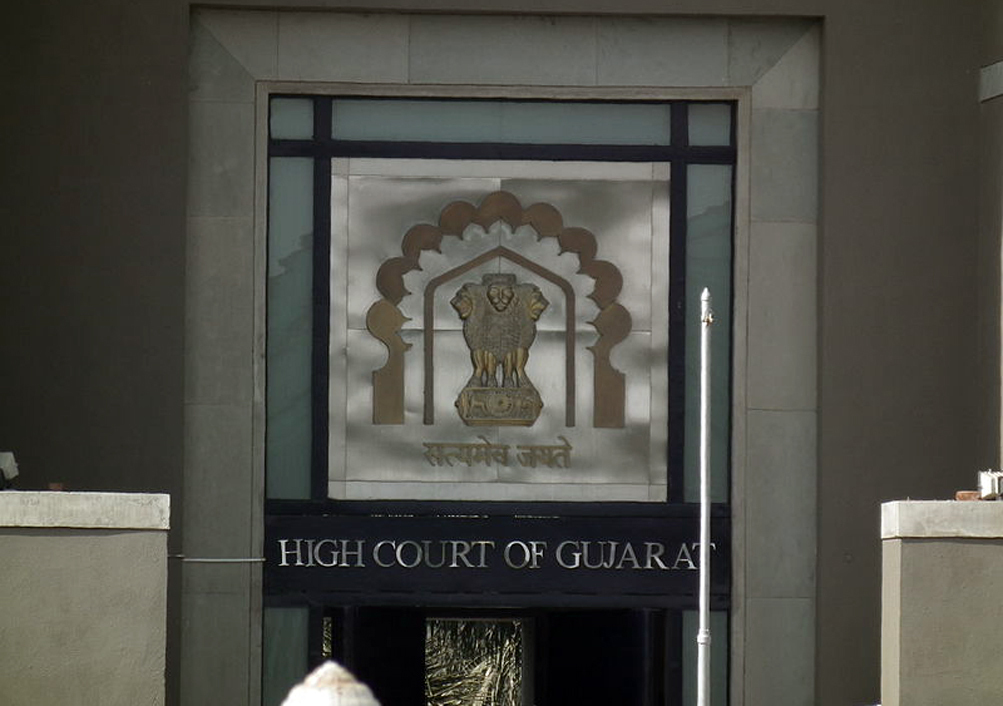In R/SPECIAL CIVIL APPLICATION NO. 7936 of 2022- GUJ HC- Isolated, casual incident directed against single individual can’t have so much gravity as to jeopardise public order: Gujarat High Court Justices S.H. Vohra & R. M. Sareen [08-07-2022]

Read Order: SHRINIVASAN VENKATSWAMI OTAR v. COMMISSIONER OF POLICE, AHMEDABAD CITY
LE Correspondent
Ahmedabad, July 11, 2022: A casual and isolated incident cannot have an implication of such gravity that it will affect the tempo of life so as to jeopardise public order, the Gujarat High Court has observed.
By holding that unless and until there is material to make out a case that the person has become a threat and menace to society so as to disturb the whole tempo of the society and that all social apparatus is in peril disturbing public order at the instance of such person, it cannot be said that the person is within the meaning of Section 2 (c) of the Gujarat Prevention of Anti-Social Activities Act, 1958.
A Division bench of Justice S.H. Vohra and Justice Rajendra M. Sareen allowed the instant petition moved by the petitioner against the order of detention dated April 6, 2022 passed by the respondent-detaining authority in exercise of the powers under Section 3 (2) of the Gujarat Prevention of Anti Social Activities Act, 1958 by detaining the petitioner-detenue as defined under Section 2 (c) of the Act.
The bench was of the opinion that the incidents alleged against the petitioner were directed against a single individual having no adverse effect prejudicial to maintenance of public order.
It was the case of the detenue that the order of the detention impugned in the instant petition deserved to be quashed and set aside on the ground of registration of the offences under Sections 380, 114 etc. of IPC by itself cannot bring the case of the detenue within the purview of definition under section 2(c) of the Act.
After hearing the rival contentions of the parties, the Court was of the view that the subjective satisfaction arrived at by the detaining authority cannot be said to be legal, valid and in accordance with law, inasmuch as the offences alleged in the FIR/s cannot have any bearing on the public order as required under the Act and other relevant penal laws are sufficient enough to take care of the situation and that the allegations as have been leveled against the detenue cannot be said to be germane for the purpose of bringing the detenue within the meaning of section 2(c) of the Act.
“Unless and until, the material is there to make out a case that the person has become a threat and menace to the Society so as to disturb the whole tempo of the society and that all social apparatus is in peril disturbing public order at the instance of such person, it cannot be said that the detenue is a person within the meaning of section 2(c) of the Act,” the Bench observed.
In view of the same, the Court noted that except the general statements, there was no material on record which depicted that the detenue was acting in a manner that would have posed a peril to the public order.
In relation to the same, the Court noted that the alleged incidents were directed against a single individual having no adverse effect prejudicial to maintenance of public order, disturbing the tempo of life and peace of the locality.
“Such a casual and isolated incident will hardly have any implication, which will affect the tempo of life so as to jeopardize the public order,” the Court observed.
The Court also observed: “So, the acts committed by the petitioner itself are not detriment to his own gravity, but it is potential of the act, which matters.” At this stage reliance was placed on the Apex Court judgment in the case of Pushker Mukherjee v/s. State of West Bengal.
In light of the aforesaid findings, the petition was allowed by observing that the “simpliciter registration of FIR/s by itself cannot have any nexus with the breach of maintenance of public order and the authority cannot have recourse under the Act and no other relevant and cogent material exists for invoking power under section 3(2) of the Act,” the Court submitted.
Hence, the impugned order was set aside and quashed.
Sign up for our weekly newsletter to stay up to date on our product, events featured blog, special offer and all of the exciting things that take place here at Legitquest.




Add a Comment